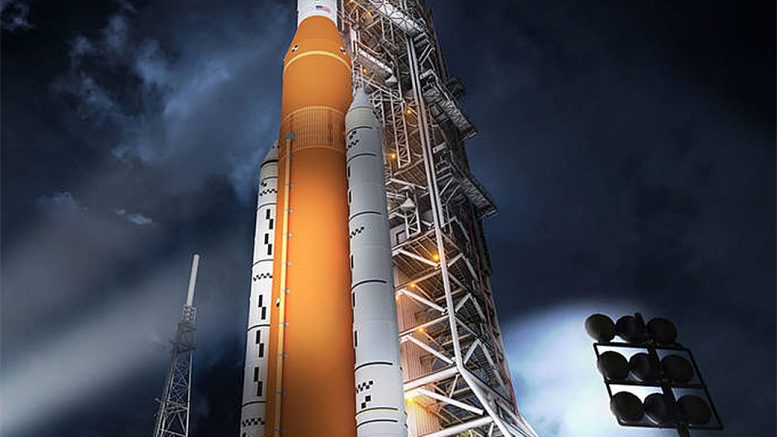In the last few days, NASA has twice had to abort launches of the Artemis mission to the Moon. By the time this article appears in print, there may be another attempt, a successful launch or a failure. Regardless of what will happen, I will watch the launch attempts with enthusiasm — and I say this as a socialist.
Watching a weekend politics programme this morning on the BBC, I saw a journalist attempt to coax a Labour politician to say something positive or negative about the Artemis mission — with little success. There is a sense that many on the Left either take no interest in exploring space, or oppose the programme as a waste of money desperately needed here on Earth.
The debate goes back many decades. In the 1960s there were many in the U.S. who opposed the NASA missions that successfully landed a man on the moon on the grounds that the money could have been better spent on, for example, alleviating poverty. Of course that argument ignored the fact that in the mid-1960s, under the Democratic President Lyndon Johnson, the U.S. had launched a very expensive “war on poverty” at the same time as it was sending astronauts into orbit. Apparently, it was not a zero-sum game.
In 1983 I interviewed the American writer Michael Harrington, who founded Democratic Socialists of America (DSA). He told me that he believed that it was “important to explore the universe. I think that there might be some things that are not necessarily of economic value out there.” He added: “We might even learn something about ourselves.”
Harrington’s comments followed on a long tradition of interest in space travel on the Left. In the early Soviet period, before the onset of the Stalinist regime, visionaries like Konstantin Tsiolkovsky pioneered many key concepts that allowed for eventual exploration of the planets and the stars. It was another Soviet scientist, the Ukrainian Yuri Kondratyuk who came up with the method being used today by the Artemis programme to send a rocket to the Moon and back. The early Soviet scientists came up with some of the core concepts used today by NASA and others, including the idea of a multi-stage rocket, which Tsiolkovsky developed in 1929. Try to remember that as we watch the various stages of the giant Space Launch System blast off and then separate.
I think part of the reason why socialists have sometimes been among the most enthusiastic supporters of space exploration has to do with how we view the future. We have long used the slogan “socialism or barbarism” and it might be useful to think about what that actually means. To me, it means that we can either imagine a socialist future for humankind — or no future at all. To us, the alternative to climate catastrophe and global nuclear war is the creation of new societies based on social justice.
In other words, while businessmen and the governments that support them, are focussed on making a “quick buck”, we are thinking more long term. We can imagine a future for our species and our planet and we can therefore think over the horizon.
That’s why we look forward to things like Artemis, with its promise of humans once again setting foot on the Moon — and in just a few short years, landing on Mars as well. I for one can’t wait to see that happen.
This article appeared in this week’s issue of Solidarity.
